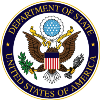#APEC: Advancing Economic Prosperity Through U.S. Engagement With the Asia-Pacific
By: Benjamin Wohlauer, Director of the Office of Economic Policy in the Bureau of East Asian and Pacific Affairs at the U.S. Department of State.
Today, Secretary of State John Kerry arrived in Peru to join foreign and trade ministers from the 20 other member economies of the Asia-Pacific Economic Cooperation (APEC) forum to kick off its annual Ministerial Meeting. APEC is the enduring centerpiece of the United States’ regional economic engagement in the Asia-Pacific region. Over the weekend, President Obama will attend the APEC Economic Leaders’ Meeting. These annual meetings bring together the leaders of Asia-Pacific economic and business leaders to make concrete progress on issues such as innovation, trade liberalization, and sustainable and inclusive growth, which are at the heart of the region’s future prosperity. Here’s a little background on the institution.
What is APEC?
With the common goal of liberalizing trade and investment, APEC continues to be an incubator of innovative ideas that has built and sustained momentum to reduce regulations and increase economic cooperation for 27 years. APEC’s sustained success is rooted in its openness and the principle of equality of members. APEC works on a consensus and voluntary basis, allowing member economies to be ambitious and to pioneer ideas in ways that might not be possible in another forum. Indeed, it is a microcosm of the larger global economy, given the makeup of developing and developed economies, large and small. The proof of APEC’s importance is evident in its growth — It has increased in size from the original 12 economies in 1989 to 21 today. APEC members contain 40 percent of the world’s population and account for approximately 60 percent of the world’s gross domestic product (GDP). The United States’ economic growth depends on the Asia-Pacific, the fastest growing region in the world, which consumes over 60 percent of U.S. exports.
Is APEC made up of only governments? What about business?
Businesses are on the front lines of international commerce, and APEC recognizes the importance of listening to the voice of the private sector. APEC has a built-in business advisory council that collaborates closely with government counterparts to ensure APEC’s policy proposals are concrete and meaningful in the 21st century global economy. The CEO Summit is an annual feature at the APEC Leaders’ Meeting. This year, it will convene over 700 business leaders from across the Asia-Pacific region to build networks and solve problems through dialogues with the APEC economies’ leaders, and will feature speakers such as Facebook CEO Mark Zuckerberg.
Why is APEC important to U.S. interests?
APEC cuts red tape for American exporters, which in turn creates jobs. An estimated 4.5 million jobs in the United States are linked to exports to APEC economies, a number that will only increase as regulations and other barriers continue to fall. APEC’s prioritization of direct engagement with business leaders in sectors where U.S. firms have a competitive advantage, such as digital commerce and services, ensures particular advantages for U.S. companies in the region.
As the premier economic forum in the Asia-Pacific region, APEC is where the largest and most influential economic players identify common priorities and develop regional frameworks to manage “next-generation” topics critical to regional prosperity.
Investing in APEC — A Worthwhile Commitment
It’s important for the United States to remain engaged in a rapidly changing world. It’s particularly critical to strengthen ties between the United States and strategically important regions like the Asia-Pacific. As Secretary Kerry and President Obama head to Peru this week, they do so against the backdrop of continued economic growth and vibrancy in the Asia-Pacific region — growth to which APEC has directly contributed and from which the United States benefits. For more than two decades, APEC has underpinned the economic pillar of our commitment to the Asia-Pacific, serving as the premier platform for the United States to find common ground with Asia Pacific partners in order to reduce barriers to business and promote better governance. As the Peru’s host year nears conclusion, we look forward to positive outcomes from this week’s meetings that will provide momentum as we head into the Vietnam’s host year in 2017.
This entry originally appeared on DipNote, the U.S. Department of State’s Official Blog.
